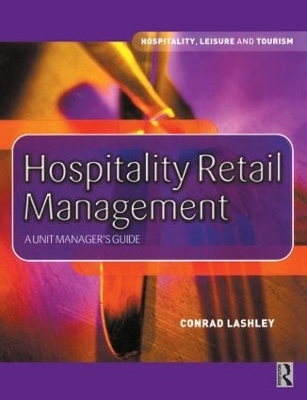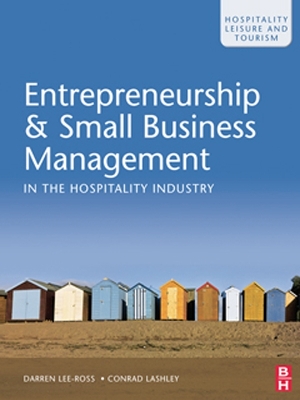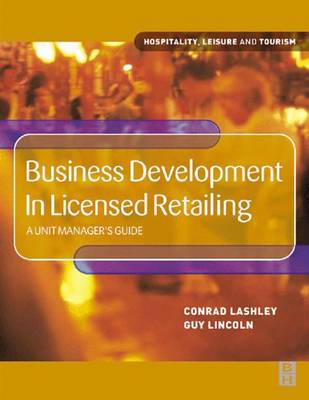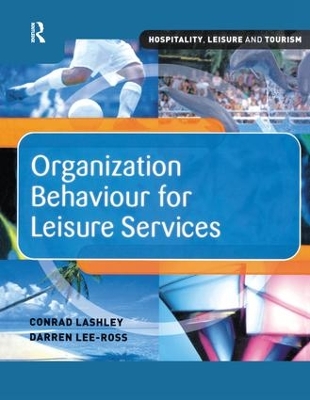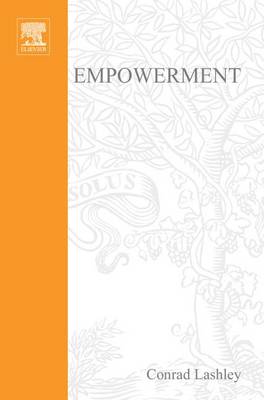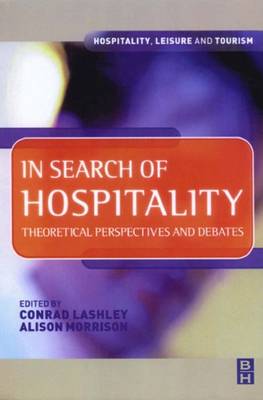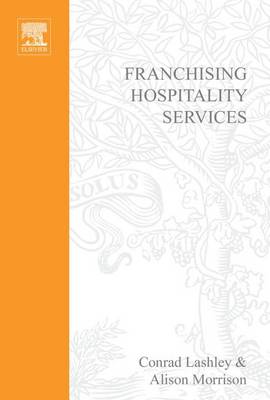Hospitality, Leisure and Tourism
8 total works
'Hospitality Retail Management' provides students and managers with a practical guide to managing units in hospitality retail organizations.
Customers rely on a particular chain of hotels, restaurants or pubs to provide the same level of service and environment across the board. This standardised service provides the customer with the security of knowing what to expect from that particular organisation. However, this standardisation allows little room for creativity for individual managers to respond to the particular needs of their local market. There is a growing realisation that there is greater profitability if the chain can offer both standardised services across all its retail operations while at the same time allowing local managers the freedom to interpret the needs of its local market as they see fit.
'Hospitality Retail Management' shows managers and students how competitive advantage can be gained by adopting management techniques which are both 'tight and loose', and demonstrates how you can manage businesses with well-defined objectives while also allowing local managers to interpret their local market as they see fit.
Conrad Lashley has done extensive consultancy with companies such as McDonalds and uses case studies from these companies to reiterate key issues throughout the text.
Entrepreneurship & Small Business Management in the Hospitality Industry
by Darren Lee-Ross and Conrad Lashley
Small businesses are the backbone of the tourism and hospitality industry and, depending on which statistics one uses, represent somewhere between 75 to 95 percent of all firms globally in this sector. The number of entrepreneurs has dramatically and uniformly increased globally over the last ten years.
Divided into four sections, Entrepreneurship and Small Business Management in the Hospitality Industry takes an intuitive step-bystep progression through each stage of the entrepreneurial process: context, theoretical perspectives and definitions; Concept to reality; The business plan; Growth and the future.
Ideal for students at any level, the chapters of this book invite you to ponder upon your reading through a series of ‘reflective practice’ activities. These, along with case studies, clearly defined chapter objectives, reflections, role-play activities and experiential exercises, allow you to both think actively about themes, concepts and issues and then apply them to a number of suggested scenarios. Perfect preparation for the up-and-coming entrepreneur!
Timeshare Management: An Introduction to Vacation Ownership
by Tammie J Kaufman, Conrad Lashley, and Lisa Ann Schreier
This book updates hospitality students in this vacation sector, provides the key background information, explanation of the growth, the components to vacation ownership management and an overview of opportunities in vacation ownership management.
Timeshare Management provides the understanding of the financing, marketing, sales, management, and human resource issues surrounding the subject - vital to any hospitality and tourism student.
This book:
* Forms the basis of a complete course for a unit manager's development.
* Provides an overview of the range of skills needed for effective unit management.
* Supports the development of techniques with examples from existing best practice and case examples from companies such as JD Wetherspoon's, TGI Fridays and McDonald's amongst others.
Business Development in Licensed Retailing considers the functional management techniques required at unit management level, covering recruitment, human resource management, operations, service quality and customer relations, financial measurement and analysis, promotions and strategic planning. The analysis systematically provides all the practical know-how you need to produce of a comprehensive business plan for your unit.
Ending with a comprehensive case study that demonstrates all the aspects of business development working in a real-life scenario, the text is ideally suited for lecturers and management development personnel to use as a learning resource through which readers can apply the principles and techniques outlined.
Organization Behaviour for Leisure Services
by Darren Lee-Ross and Conrad Lashley
Organization Behaviour for Leisure Services provides the reader with the conceptual tools necessary for analysing organizational behaviour in the context of hospitality, leisure and tourism provision, and understaanding events in order to take appropriate management action.
Taking the view that leisure services involve an array of industry sectors - they are related, for instance, to work-time spent eating, drinking and staying away from home, as well as the more obvious recreational pursuits - the text uses examples and case studies from a wide range of international businesses such as hotels, restaurants, museums, shopping malls and sports stadia. Specific examples used are from Marriotts, McDonald's, Trafford Centre and many more. With a user-friendly structure and style, the text is an ideal introduction to the fundamental issues involved - perfect for students and managers alike.
This book discusses and questions a number of key elements, including:
- The individual and the organization
- Groups in the organization
- Organizational structures and behaviour
- Management within the organization
- Commercial hospitality, leisure and tourism in a service context
There is a Tutor Resource pack available to lecturers who adopt this text. Accredited lecturers can request access to download this material by going to http://books.elsevier.com/academic/defaultmanuals.asp? to request access.
When successfully incorporated as part of HR strategy, empowerment can:
* enable organizations to gain commercial and competitive advantage
* become more flexible
* improve employee commitment
* use the skills of individual employees to best advantage and enhance personal capabilities.
'Empowerment: HR strategies for service excellence' uses case studies from companies such as McDonalds, TGI Fridays and Harvester Restaurants to build a picture of empowerment of service employees in context, illustrating how different forms of empowerment are employed and different working arrangements are practiced.
This title brings together an extraordinary collection of leading researches and writers in hospitality, sociology, philosophy and social history, thereby providing a broad and comprehensive perspective on hospitality. It focuses the study of hospitality across the range of human, social and economic settings, and provides a reference point for the future development of hospitality as an academic discipline.
Harnessing this wide range of viewpoints, 'In Search of Hospitality' offers an intellectually stimulating and innovative approach to the study of hospitality. It is ideal for students and academics within both the applied fields of hospitality and tourism studies and the general fields of business studies and behaviour sciences. It is also suitable for practitioners in hospitality, leisure and tourism businesses, for whom it provides a provocative and informative guide to understanding and providing hospitality within a commercial context.
